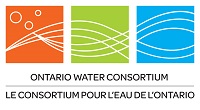Wilfrid Laurier University undertakes a holistic, interdisciplinary and ecosystem approach to the study of both Canadian and global water issues, including the effects of climate change, the sustainability of healthy aquatic and coastal ecosystems, resource management, community well-being, and the development of regulations and policy related to water use. A primary area of institutional strength at Laurier is cold regions water science, conducted in partnership with governments, Indigenous communities and leaders, and other key collaborators. Laurier facilities allow for the study of hydrology, aquatic culture and testing, biogeochemistry characterization, molecular biochemistry and imaging, and predictive modelling.
RESEARCH CENTRES AND INSTITUTES
The Laurier Institute for Water Science (LIWS) is a multidisciplinary, collaborative undertaking among research faculty in the Faculty of Arts, the Lazaridis School of Business and Economics and the Faculty of Science.
Contact: Kevin Stevens (kestevens@wlu.ca), Jim McGeer (jmcgeer@wlu.ca)
The Cold Regions Research Centre was established in 1987, evolving from a large multidisciplinary, research & training, project on snow & ice hydrology in the Karakoram Himalaya of Pakistan that was based in WLU’s geography department.
Contact: Colin Robertson (crobertson@wlu.ca)
RESEARCH GROUPS AND LABS
| Research Group | Contact |
|---|---|
| Global Water Citizenship | Colin Robertson (crobertson@wlu.ca) |
| Northern Water Futures | Jenn Baltzer (jbaltzer@wlu.ca) |
| Sub-Arctic Metal Mobility Study | Brent Wolfe (bwolfe@wlu.ca) |
| Matawa Water Futures | Miguel Sioui (msioui@wlu.ca) |
| Freshwater Ecology Lab | Derek Gray (dgray@wlu.ca) |
| Aquatic and Environmental Toxicology Laboratory | Michael Wilkie (mwilkie@wlu.ca) |
| Chemistry Lab for Environmental Aquatic Research (CLEAR) | Scott Smith (ssmith@wlu.ca) |
| Remote Sensing of Environmental Change Research Group | Homa Kheyrollah Pour (hpour@wlu.ca) |
| Catchment & Lake Biochemistry | Jason Venkiteswaran (jvenkiteswaran@wlu.ca) |
| Arctic Snow, Ice and Permafrost Hydrology | Philip Marsh (pmarsh@wlu.ca) |
| Dehcho Collaborative on Permafrost | William (Bill) Quinton (wquinton@wlu.ca) |


